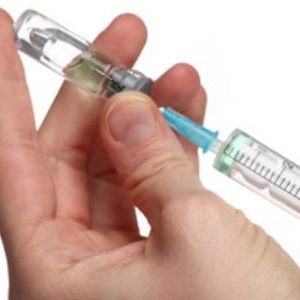
A new AIDS candidate vaccine (replicon vaccine) with the ability to act as a kind of biological packaging or delivery system for a vaccine, is under investigation. Once delivered, the cells are programmed to express HIV proteins that the immune system will recognize and hopefully protect against infection.
The vaccine will be tested on South Africans and Americans simultaneously. The trials in South Africa will determine the safety of the candidate vaccine, Dr Carolyn Williamson, medical microbiologist, told Yourhealth.co.za.
US vaccine first tested on monkeys, now humans
This research is being undertaken in collaboration with the University of Cape Town, the Medical Research Council, the International Aids Vaccine Initiative (IAVI), the University of North Carolina and Alphavax Human Vaccines Inc. based in North Carolina.
The vaccine was developed by a team of researchers from the University of North Carolina. It was tested in the USA on monkeys with the simian version of the HI-virus as a model. The monkeys injected with the vaccine, were protected from infection or disease, but the others were not. Now the vaccine has to be tested on humans.
Human trials will commence in the United States and South Africa in the first half of next year. The three phases of the vaccine trials on humans could last 7 – 10 years, with the time taken depending on the success achieved in the first two phases.
Why so difficult to develop Aids vaccine?
The major difference between finding an HIV vaccine and one for other viral diseases is that in some other viral diseases a small dosage of weakened or attenuated (non-pathogenic) virus can be injected, and can be allowed to infect a cell. This reaction will prime the human immune system to respond effectively to when it encounters the virus.
This injection of the weakened or attenuated virus can obviously not be done in the case of HIV. Once inside the human body, the HIV integrates itself into the host chromosome. A vaccine would therefore need to prevent any virus replication as once HIV infection is established, it is near impossible to eliminate.
More than ten subtypes of HIV
“Virus variability remains one of the biggest problems in the development of a vaccine,” according to Dr Williamson. There are more than 10 subtypes or clades of the virus. The subtype most common in Europe and America is clade B, while clade C is mostly found in southern Africa.”
Ideally, the vaccine should give protection against all the different strains of the virus. This will be tested in the human trials.Three phases of the trials
The vaccine trials on humans will take place in three phases:
- Phase 1: The toxicity and safety of the vaccine will be tested on humans. Liver and renal function will be monitored, blood pressure, possible skin reactions and any side-effect possible. Although the prototype vaccine has been ready from the year 2001, trials cannot commence until all the protocols had been completed and a high quality vaccine manufactured. This is being done by Alphavax, a partner in the trial.
- Phase 2 will determine whether the vaccine stimulates an immune response to HIV in humans. About 150 people will take part.
- Phase 3 will involve over 1000 people. This will test whether the vaccine prevents HIV infection and to what extent.
Biggest problems
The major problem foreseen is that no-one is quite sure what level of immunity needs to be elicited by the vaccine in order to give protection against the HI-virus, according to Dr Williamson.
Chances are very limited that one person will come up with an Aids vaccine,” Dr Williamson told YourHealth. “It is a global initiative and everyone is making little steps towards finding this vaccine.”
(Susan Erasmus - Health24)




 Publications
Publications
 Partners
Partners










